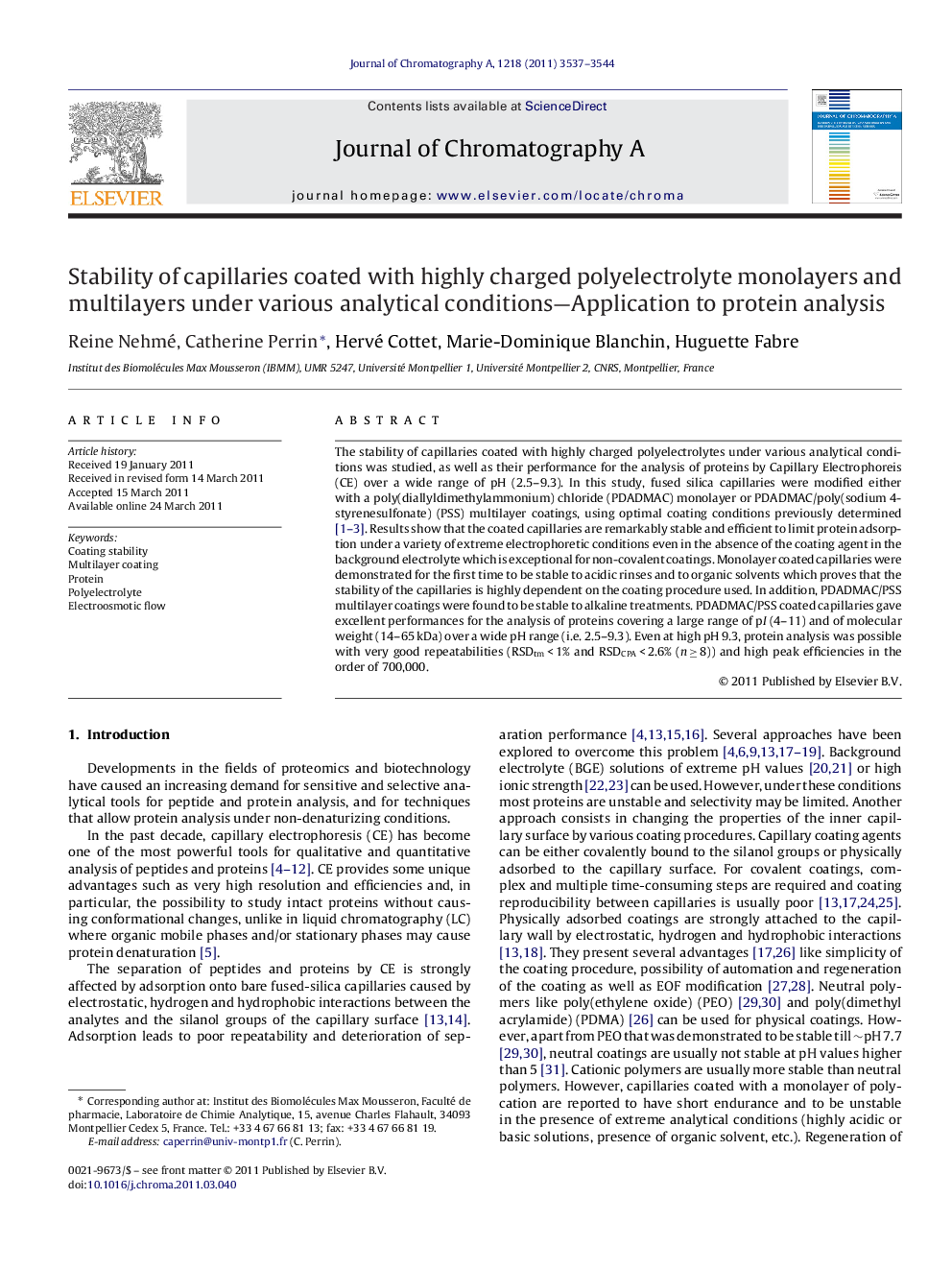| Article ID | Journal | Published Year | Pages | File Type |
|---|---|---|---|---|
| 1204273 | Journal of Chromatography A | 2011 | 8 Pages |
The stability of capillaries coated with highly charged polyelectrolytes under various analytical conditions was studied, as well as their performance for the analysis of proteins by Capillary Electrophoreis (CE) over a wide range of pH (2.5–9.3). In this study, fused silica capillaries were modified either with a poly(diallyldimethylammonium) chloride (PDADMAC) monolayer or PDADMAC/poly(sodium 4-styrenesulfonate) (PSS) multilayer coatings, using optimal coating conditions previously determined [1], [2] and [3]. Results show that the coated capillaries are remarkably stable and efficient to limit protein adsorption under a variety of extreme electrophoretic conditions even in the absence of the coating agent in the background electrolyte which is exceptional for non-covalent coatings. Monolayer coated capillaries were demonstrated for the first time to be stable to acidic rinses and to organic solvents which proves that the stability of the capillaries is highly dependent on the coating procedure used. In addition, PDADMAC/PSS multilayer coatings were found to be stable to alkaline treatments. PDADMAC/PSS coated capillaries gave excellent performances for the analysis of proteins covering a large range of pI (4–11) and of molecular weight (14–65 kDa) over a wide pH range (i.e. 2.5–9.3). Even at high pH 9.3, protein analysis was possible with very good repeatabilities (RSDtm < 1% and RSDCPA < 2.6% (n ≥ 8)) and high peak efficiencies in the order of 700,000.
